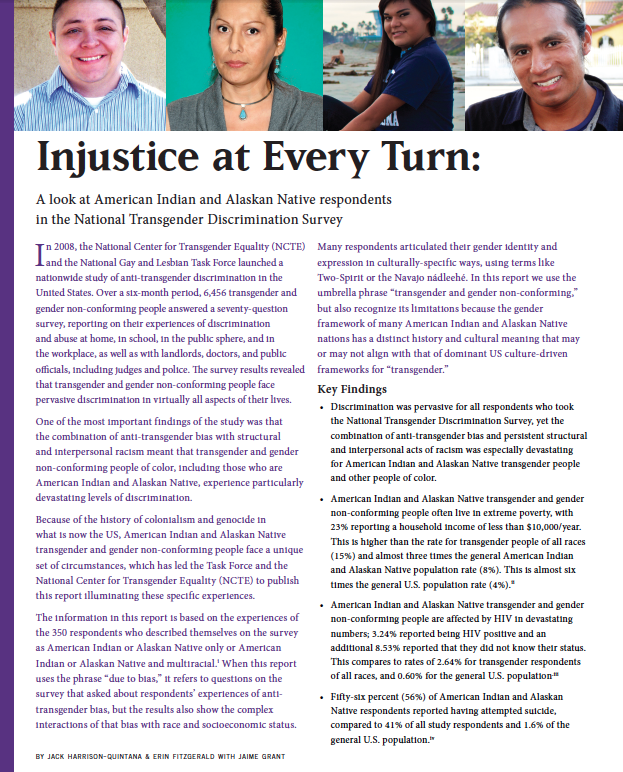In 2008, the National Center for Transgender Equality (NCTE) and the National LGBTQ Task Force launched a nationwide study of anti-transgender discrimination in the United States. Over a six-month period, 6,456 transgender and gender non-conforming people answered a seventy-question survey, reporting on their experiences of discrimination and abuse at home, in school, in the public sphere, and in the workplace, as well as with landlords, doctors, and public officials, including judges and police. The survey results revealed that transgender and gender non-conforming people face pervasive discrimination in virtually all aspects of their lives.
One of the most important findings of the study was that the combination of anti-transgender bias with structural and interpersonal racism meant that transgender and gender non-conforming people of color, including those who are American Indian and Alaskan Native, experience particularly devastating levels of discrimination.
Because of the history of colonialism and genocide in what is now the US, American Indian and Alaskan Native transgender and gender non-conforming people face a unique set of circumstances, which has led the National LGBTQ Task Force and the National Center for Transgender Equality (NCTE) to publish this report illuminating these specific experiences. The information in this report is based on the experiences of the 350 respondents who described themselves on the survey as American Indian or Alaskan Native only or American Indian or Alaskan Native and multiracial. When this report uses the phrase “due to bias,” it refers to questions on the survey that asked about respondents’ experiences of anti-transgender bias, but the results also show the complex interactions of that bias with race and socioeconomic status.
Many respondents articulated their gender identity and expression in culturally-specific ways, using terms like Two-Spirit or the Navajo nádleehé. In this report we use the umbrella phrase “transgender and gender non-conforming,” but also recognize its limitations because the gender framework of many American Indian and Alaskan Native nations has a distinct history and cultural meaning that may or may not align with that of dominant US culture-driven frameworks for “transgender.”


